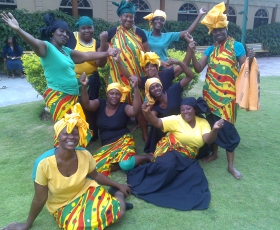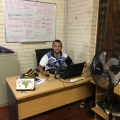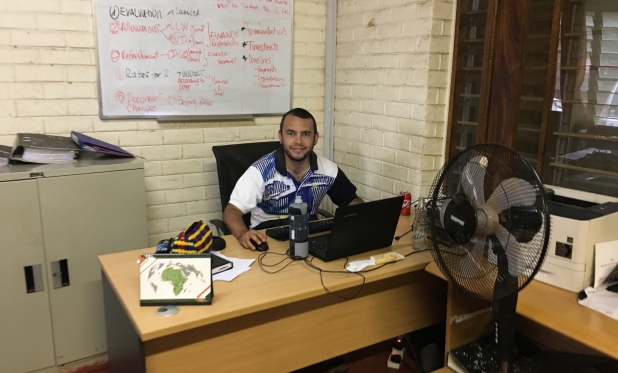In 2012, Daniel got in touch with AfID as he was struggling to get his foot in the door to the not for profit sector.
As our first ever Latin American volunteer, Daniel headed to the Democratic Republic of the Congo to support War Child for 4 months and from there, he has never looked back (well, at the for-profit sector anyway!). Almost six years on from his first assignment, we got in touch with Daniel to hear his thoughts on the value of volunteering…
Can you tell us a little about your current role?
I’m currently the Interim Head of Finance and Operations of an NGO called “Theatre for a Change” in Malawi. At the beginning, my role involved giving capacity to a member of staff in order to see if he could become Finance Director – which he did! The other part of my job is to update and develop current policies and procedures in both Finance and Operations.
How easy was it to adapt to living and working in a different culture when volunteering?
Honestly, my first assignment was very hard for me – I went to the eastern DRC in 2012 and it was a really tough time for the country at that point. In the long run though, it prepared me for so much. It’s a different environment to live in, different authorities so yes, you may not find it ‘easy’ but people are generally very friendly and you become so much more open to engage, network and meet people.
Why did you choose to work in the International Development sector?
My first ‘real’ job was with an American Microfinance NGO that had projects all over the world. I tried for-profit for one year but it just wasn’t my thing and I can’t imagine doing anything that is not within the International Development sector anymore.
Do you feel your voluntary experience with AfID helped you gain your current role and prepare for life in your new role? If so, how?
Yes definitely, my experience with AfID has been outstanding. I went to the DRC as an AfID volunteer and it was the job that changed my life. From there I moved into a paid position with a German NGO and that was directly because of my volunteering experience. My understanding of emergency responses and relationships with various donors and UN institutions comes directly from my volunteering experience with DRC – I would not be where I am today without it.
What is your most memorable moment on your volunteering placement through AfID?
Probably coordinating to get evacuated from Goma, DRC back in November 2012 when war was upon us!
What would you say are the pros & cons of your decision to work in the sector?
I think the biggest pro is that it will challenge you in every way, both professionally and personally. You will become more aware of the people around you, learn so much about life, about different languages. The best thing is that you will end up with cherished friends from all over the world.
I would say the biggest con is the frustration – it’s a big one and it’s one I’ve learnt how to deal with over time. My advice would be to manage your expectations as things are probably not going to end up exactly how you have planned.
What ‘do’s and dont’s’ would you give to anyone thinking of travelling and working in a less developed country?
Do: Learn a new language every time you have the possibility. Be humble with your knowledge, be open to new ideas and listen to the reasons why people did what they did in the past.
Don’t: Assume things without checking, be reckless regarding your health or security.
What would be your advice to other accountants considering a similar career change or looking to break into the sector?
I think most of what is required is some problem solving and a lot of creativity! Be prepared to take on duties such as admin and logistics, as well as your finance and accounting work. The most important thing though, is to remind yourself constantly that when working for an NGO, the priority should always be to ensure that you are always progressing towards the organisation’s goal.



 Name
Name